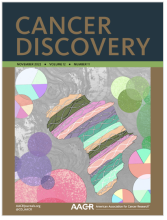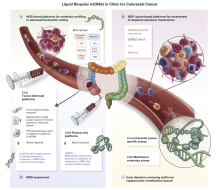
Alzheimer’s Disease Causes Major Metabolic Changes in the Brain
September 14, 2022
A collaboration between Weill Cornell Medicine scientists and other leaders in Alzheimer’s disease research has revealed widespread metabolic changes in the brains of individuals with Alzheimer’s disease. The findings could lead to the development of new treatments aimed at ameliorating the metabolic effects of the disease.

USF Health, Weill Cornell Medicine Earn Inaugural Funding in NIH’s Newly Launched Bridge2AI Initiative, will Create Artificial Intelligence Platform for Using Voice to Diagnose Disease
September 13, 2022
Tampa FL (Sept. 13, 2022) – Artificial intelligence may soon help doctors diagnose and treat diseases, including cancer and depression, based on the sound of a patient’s voice, as 12 leading research institutions launch a landmark National Institutes of Health-funded academic project that may establish voice as a biomarker used in clinical care.

Biological Links Identified Between an Aggressive Breast Cancer Type and African Ancestry
September 5, 2022
Weill Cornell Medicine investigators have identified definitive biological links between African ancestry and disease processes that affect an aggressive cancer type called triple-negative breast cancer (TNBC). Their analysis of TNBC tumors from a diverse patient population yielded a large set of genes whose expression differed in patients with African ancestry compared with patients with European ancestry.

September 2022 EIPM Director's Memo
September 1, 2022
Dear Members of the Englander Institute,
I hope you were able to take some time off this summer and relax with friends and family members, and hopefully recharge for a productive autumn.
As you’ll see below, members of the EIPM had a very productive August, with significant news media coverage of our work, presentations at major international conferences, and impactful publications in high-profile journals. Thank you all for the great work during the heat of the summer!

EIPM researchers identify target of immune attacks on liver cells
September 1, 2022
When fat accumulates in the liver, the immune system may assault the organ. A new study from Weill Cornell Medicine researchers identifies the molecule that trips these defenses, a discovery that helps to explain the dynamics underlying liver damage that can accompany type 2 diabetes and obesity.

Your Doppelgänger Is Out There and You Probably Share DNA With Them
August 24, 2022
Charlie Chasen and Michael Malone met in Atlanta in 1997, when Mr. Malone served as a guest singer in Mr. Chasen’s band. They quickly became friends, but they didn’t notice what other people around them did: The two men could pass for twins.

Researchers Identify the Target of Immune Attacks on Liver Cells
August 19, 2022
When fat accumulates in the liver, the immune system may assault the organ. A new study from Weill Cornell Medicine researchers identifies the molecule that trips these defenses, a discovery that helps to explain the dynamics underlying liver damage that can accompany type 2 diabetes and obesity.

A Conversation with Dr. Pashtoon Kasi
August 17, 2022
Dr. Pashtoon Kasi is the Englander Institute for Precision Medicine’s Director for Liquid Biopsy Research. He is an oncologist and researcher focused on treating patients with gastrointestinal cancers and other solid tumors using novel clinical trials and therapies. His focus has been on understanding the genomics and genetics of the underlying cancer, and to help treat these cancers in a more personalized fashion.

Novel Technique Provides Insights into Lung Pathology in COVID-19
August 4, 2022
Investigators at Weill Cornell Medicine and NewYork-Presbyterian have used advanced technology and analytics to map, at single-cell resolution, the cellular landscape of diseased lung tissue in severe COVID-19 and other infectious lung diseases. In the study, published in the May 2021 issue of Nature, the researchers imaged autopsied lung tissue in a way that simultaneously highlighted dozens of molecular markers on cells.


